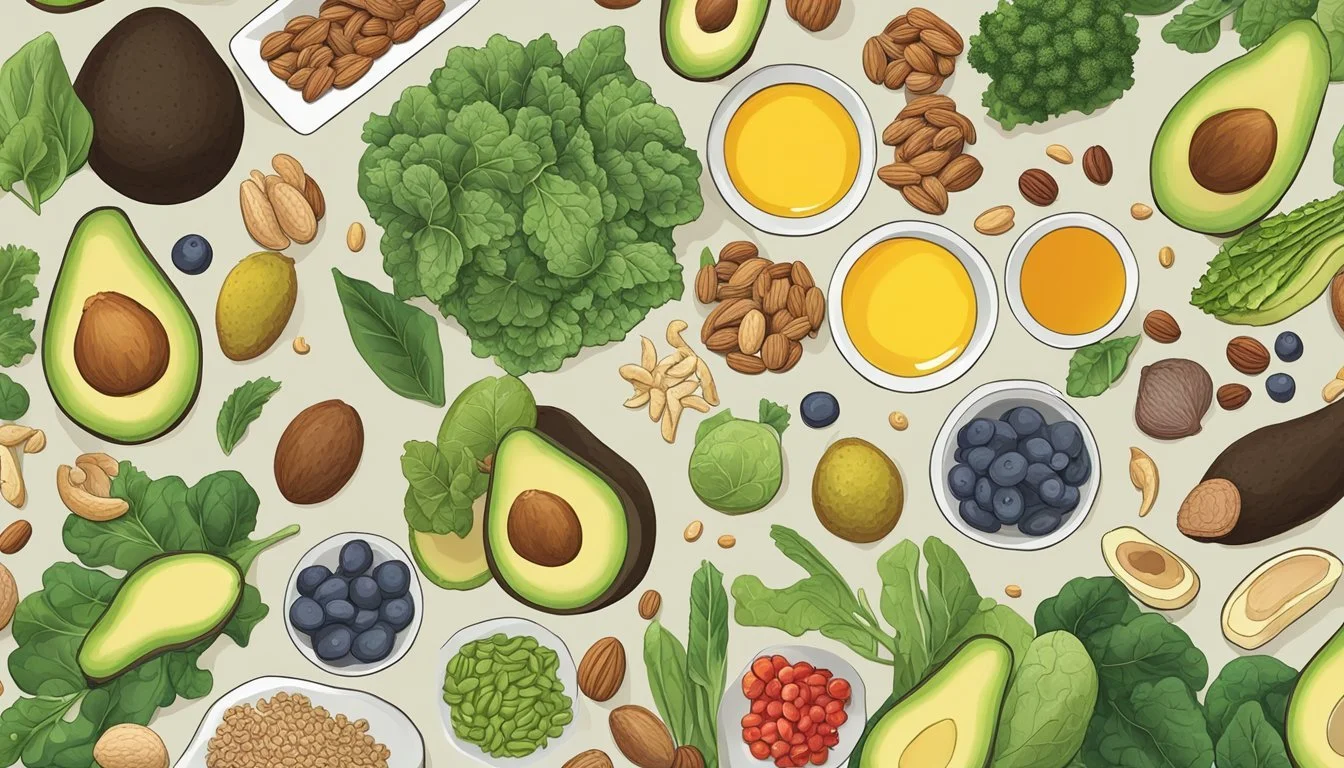Keto Diet: Gut Microbiome's Influence on Digestive Health
The ketogenic diet, commonly known as keto, emphasizes low carbohydrate intake and a high fat content, a combination that has been traditionally used to manage epilepsy. In recent years, this diet has gained popularity for weight loss and its potential effects on various health conditions, including type 2 diabetes and neurodegenerative diseases. The shift to a ketogenic diet is not only a change in the consumption of macronutrients but also initiates a substantial alteration in the body's metabolic processes, relying on ketone bodies as a primary energy source instead of glucose.
An emerging area of interest is the impact of the ketogenic diet on the gut microbiome, the complex community of microorganisms residing in the human gastrointestinal tract. Dietary patterns play a critical role in shaping the gut microbial landscape, and transitioning to a high-fat, low-carbohydrate diet appears to result in significant changes in the composition and function of the gut microbiota. These changes have been associated with modifications in the proportions of key bacterial phyla such as Actinobacteria, Bacteroidetes, and Firmicutes, which can have profound effects on the host's health.
Research suggests that these alterations in the gut microbiome may contribute to the diet's therapeutic effects, including potential anti-inflammatory properties. However, understanding the complex relationship between the ketogenic diet and the gut microbiota is crucial, as this interaction may influence both the efficacy of the diet and its long-term health consequences. The investigation into this relationship is ongoing, aiming to delineate the benefits and risks associated with ketogenic dietary patterns and their influence on human health through the gut microbiome.
Overview of the Ketogenic Diet
A ketogenic diet is a high-fat, low-carbohydrate eating regimen designed to put the body into a state of ketosis. In ketosis, the body burns fat for fuel instead of carbohydrates. The typical macronutrient composition of a ketogenic diet is high in fat, moderate in protein, and very low in carbs, often not exceeding 20-50 grams of carbs per day.
The diet's structure is based on the body's metabolic flexibility. When carbohydrate intake is drastically reduced, the body resorts to fat as its primary energy source. This metabolic shift results in the production of ketone bodies, which the body uses for energy in lieu of glucose.
Weight loss is a common goal for individuals following a ketogenic diet, as the body taps into fat reserves for energy production. However, beyond weight loss, research suggests potential therapeutic applications in managing certain health conditions, though more studies are needed.
The list below outlines the general macronutrient distribution of a ketogenic diet:
Daily Macronutrient Distribution
Fat: 70-80% of Total Daily Calories
Protein: 20-25% of Total Daily Calories
Carbohydrates: 5-10% of Total Daily Calories
Adherents of the ketogenic diet often report increased satiety, which can be attributed to the high-fat content of meals. Despite the popularity of the ketogenic diet for weight loss, it is crucial for individuals to consider their overall health status and consult with healthcare professionals before making significant dietary changes.
Keto Diet and Its Impact on Gut Microbiome
The ketogenic diet, predominantly high in fats and low in carbohydrates, influences the composition and diversity of the gut microbiota, which can have various health implications.
Composition of Gut Microbiota
The human gut microbiota consists of a complex community of bacteria, with major phyla including Bacteroidetes, Firmicutes, Actinobacteria, and Proteobacteria. The balance and composition of these bacterial groups are essential for maintaining gut health and function.
Ketogenic Diets and Gut Microbes
A ketogenic diet significantly alters the gut microbiome by promoting changes in the relative abundance of bacteria. Specifics include a decrease in some Bacteroidetes species and an increase in certain Firmicutes. This shift could be attributed to the lack of fermentable carbohydrates and an increase in fat intake, which selects for microbes capable of metabolizing fat-derived substrates.
Keto Diet and Bacterial Diversity
Research indicates that a ketogenic diet may reduce the overall microbial diversity in the gut. Reduced diversity could potentially impact the gut microbiota's resilience and its ability to respond to environmental challenges. However, the ketogenic diet's high-fat content has been associated with an increase in certain probiotic populations, hinting at a complex interplay between diet and gut microbiota health.
The Role of Fat and Carbohydrates
The ketogenic diet alters the body’s energy utilization by significantly modifying fat and carbohydrate intake, impacting the composition of the gut microbiota.
Fat Intake on Keto
On a ketogenic diet, high-fat consumption is paramount, often comprising 70-80% of the entire caloric intake. The shift to a high-fat, low-carb diet prompts the body to enter a state known as ketosis, where fat serves as the primary source of energy. This transition affects the gut environment, as certain microbes capable of metabolizing fat proliferate while others diminish.
Carbohydrate Restriction and Microbiota
Reduction in carbohydrate consumption, especially of simple sugars and starches, is another cornerstone of the ketogenic diet, which typically limits carbs to less than 50 grams per day. This drastic decrease has a direct impact on the gut microbiota by reducing the availability of carbohydrates like resistant starch and fiber, which are important for the nourishment of certain beneficial bacteria. Meanwhile, the absence of higher-carb foods like many fruits can lead to a decrease in gut biodiversity. However, the inclusion of low-carb, fiber-rich vegetables is recommended to maintain gut health.
Health Effects of Keto-Induced Microbiome Changes
The ketogenic diet induces changes in the gut microbiome that may have significant health implications. These changes can affect metabolic health, inflammatory and immune responses, as well as influence the progression or improvement of various diseases.
Metabolic Health
The ketogenic diet's alteration of the gut microbiome is associated with several effects on metabolic health. Specifically, studies indicate that this diet may lead to improved glucose tolerance and decreased insulin resistance. By changing the composition of the gut flora, the ketogenic diet seems to influence the metabolic syndrome, which is a cluster of conditions including high blood pressure, high blood sugar, and obesity, potentially reducing the risk for developing type 2 diabetes and cardiovascular diseases.
Inflammation and Immune Responses
A key effect of the ketogenic diet on the microbiome is its impact on inflammation and immune responses. The dietary shift towards high-fat intake has been observed to influence the level of inflammation in the gut. For example, some research has shown that ketone bodies, produced during ketosis, may directly suppress inflammatory processes in the gastrointestinal tract. Additionally, the diet may affect immune cells, such as T cells, including Th17 cells, which play a role in autoimmune conditions. This immunomodulation can have implications for inflammatory diseases like inflammatory bowel disease, which includes Crohn’s disease and ulcerative colitis.
Impact on Diseases
The keto-induced changes in the gut microbiome can also have implications for a variety of diseases. The anti-inflammatory effects may benefit individuals with irritable bowel syndrome or autoimmune conditions affecting the gut. Furthermore, there is ongoing research investigating the relationship between the keto-adapted microbiome and the risk of obesity, diabetes, cancer, and other metabolic and inflammatory diseases. Maintaining a healthy and balanced gut flora through diet can be a crucial part of management and prevention strategies for these conditions.
Specific Microbial Changes and Ketonemia
The ketogenic diet prompts significant fluctuations in gut microbiota due to altered macronutrient intake, particularly an increase in fats and a decrease in carbohydrates, leading to the production of ketone bodies, notably β-hydroxybutyrate. These metabolic changes have a direct impact on certain bacterial populations within the gut.
Ketone Bodies and Bacteria
Ketone bodies, especially β-hydroxybutyrate, are produced during ketosis, which is a metabolic state induced by a ketogenic diet. These bodies serve as alternative energy sources for the host when glucose is scarce. Ketone bodies not only provide energy for human cells but are also known to influence gut microbiota. Research suggests that ketone bodies can alter the gut environment, making it more hospitable for certain microorganisms while inhibiting others. The specific mechanisms through which β-hydroxybutyrate affects gut bacteria remain a subject of study, but it involves modifications to the intestinal milieu that enhance or suppress the growth of different microbial species.
Changes in Bifidobacteria
The ketogenic diet can lead to a decrease in populations of bifidobacteria, a genus of bacteria that is generally associated with positive gut health. Bifidobacteria are known to ferment dietary fibers, producing short-chain fatty acids which are beneficial for gut lining health and immune function. A reduction in this bacterial group may be linked with the low carbohydrate intake on a ketogenic diet, as fibers are a primary source of nourishment for these bacteria. The decline of bifidobacterium can have implications for gut barrier integrity and overall gut health. However, the complete repercussions of such changes in bifidobacteria populations due to a ketogenic diet are still being explored.
Functional Implications of Microbial Shifts
The ketogenic diet prompts significant shifts in the human gut microbiome, leading to notable metabolic changes that can impact health. These shifts influence various processes including the production of short-chain fatty acids and the integrity of gut barriers.
Short-Chain Fatty Acid Production
The adoption of a ketogenic diet often results in an altered gut microbiota composition that affects the production of short-chain fatty acids (SCFAs). Butyrate, a crucial SCFA, is typically produced by gut bacteria and plays a vital role in colonic health. The ketogenic diet, by reducing the available carbohydrates in the gut, can impact the levels of butyrate-producing bacteria. This, in turn, has the potential to influence inflammatory responses and energy regulation within the host.
Gut Permeability
The integrity of the intestinal barrier is another aspect affected by the ketogenic diet-induced microbial shifts. Changes in microbial populations and the subsequent alteration in metabolic byproducts can impact intestinal permeability, also known as leaky gut. Variations in the presence of specific microbes can either strengthen or weaken the tight junctions in the intestinal wall. For instance, an increase in gut permeability can allow undesirable substances to enter the bloodstream, possibly triggering inflammation and immune reactions. The ketogenic diet's role in modifying the gut microbiome thereby contributes to the regulation of gut barrier function.
Therapeutic Applications and Probiotics
Incorporating a ketogenic diet can lead to significant shifts in the gut microbiome, which in turn may provide therapeutic benefits for neurological disorders and gut health. Probiotics can play a supportive role in this dietary strategy, potentially enhancing the beneficial effects on the microbiome composition.
Therapeutics for Gut Health
The ketogenic diet (KD), known for its high-fat, low-carbohydrate regimen, has shown efficacy in improving symptoms of neurological disorders such as epilepsy. The production of beta-hydroxybutyrate (BHB), a ketone body, is a key component of the KD's therapeutic effects. BHB serves not only as an alternative energy source for the brain during periods of reduced carbohydrate intake but also exhibits neuroprotective effects that can be beneficial for individuals suffering from seizures.
Concurrent shifts in the gut microbiome have been observed with KD implementation, including an increased Bacteroidetes to Firmicutes ratio, which is thought to positively affect gut health. These alterations in microbiota may contribute to the anticonvulsant properties of the diet, potentially through the modulation of gut-derived neurotransmitters and inflammation processes.
Probiotic Use in Ketogenic Diets
Probiotics, which are live microorganisms known to confer health benefits, can be incorporated into ketogenic diets to augment gut microbiome alterations induced by the diet. They have the potential to:
Enhance gut barrier integrity: Strengthening the mucosal barrier, thereby reducing inflammation.
Modulate immune function: Influencing systemic and neurological immune responses, potentially relevant for autoimmune diseases.
Specific strains of probiotics may further optimize the therapeutic benefits of the KD, particularly in relation to neurological disorders and seizures. By maintaining a diverse and balanced gut microbiota, probiotics can help sustain the production of neuroprotective substances like BHB, crucial for seizure management and overall brain health. While the relationship between probiotics and KD is still under investigation, early research suggests a synergistic effect, improving outcomes for those on the diet.
Dietary Considerations and Variations
When adapting a ketogenic diet, it is crucial to consider the selection of foods that support a healthy gut microbiome. The ketogenic diet involves important dietary considerations, particularly concerning fiber intake and the types of fats consumed.
Inclusion of Fibrous Foods
The ketogenic diet significantly reduces carbohydrate intake, which can lower fiber consumption since fiber is a form of carbohydrate. High-fiber foods such as leafy greens, nuts, and seeds are compatible with a ketogenic diet and can support digestive health. Including a variety of low-carb, fibrous fruits like avocados and berries not only contributes to a more diverse intake of nutrients but also helps maintain a healthy gut microbiome.
Impact of Different Fats
On a ketogenic diet, fats comprise the majority of calories. However, the type of fat consumed is pivotal. Saturated fats—found in meats, butter, and coconut oil—should be balanced with sources of unsaturated fats like olive oil, fish, and nuts. Unsaturated fats are associated with lower oxidative stress and inflammation. A variety in fat sources can also influence the composition and function of the gut microbiota, which is essential for overall health.
Research Findings and Future Directions
In recent years, substantial progress has been made in understanding the interplay between the ketogenic diet and the gut microbiome. Research findings suggest a significant impact on microbial composition, with potential health implications.
Animal Models and Human Research
Studies using animal models, particularly mice, have provided insights into how a ketogenic diet influences the human gut microbiota. These investigations indicate that such diets can induce shifts in the gut microbial community, with varied consequences for metabolic health and disease states. In humans, evidence suggests the ketogenic diet may play a role in altering gut microorganisms, potentially affecting conditions like epilepsy, obesity, and type 2 diabetes. However, research in this area is still maturing, and a direct causative relationship in humans has yet to be firmly established.
Future research needs to bridge the gap between animal models and human studies. Entities like the University of California, San Francisco and the Searle Scholars Program may contribute to this effort through funding and support.
Emerging Companies and Clinical Trials
On the commercial front, companies such as Kaleido, Pendulum, Seres, and SNIPR Biome are at the vanguard of exploring gut microbiome manipulation through diet or therapeutic means. Clinical trials are ongoing to evaluate the efficacy and safety of interventions targeting the microbiome, which could yield novel approaches to managing diseases.
Initiatives like A*STAR and the SSEW Initiative are working towards understanding how dietary changes, including the ketogenic diet, affect the gut microbiome and overall health. Funding from sources like the Tobacco Cure Funds and the Burroughs Wellcome Fund can accelerate research.
The Chan Zuckerberg Biohub and the Damon Runyon Cancer Research Foundation could play pivotal roles in supporting this emerging field of study, potentially uncovering new avenues for preventing or treating diseases through microbiome research.
Conclusion
The ketogenic diet, which is high in fat and low in carbohydrates, induces significant changes in the gut microbiota. Researchers have noted that these changes could potentially influence various health outcomes. On one hand, keto-adapted individuals often experience shifts in the microbial composition that can affect energy metabolism and immune regulation.
Key Points:
The ketogenic diet alters the gut microbiota's composition.
Health outcomes are correlated with changes in the microbiota.
Further research is needed to understand long-term effects.
Given the complexity of the gut ecosystem, it is imperative that any diet, including the ketogenic diet, is approached with consideration of the individual's health status. The ketogenic diet's impact on human health via changes in the gut microbiota, while promising, still requires more in-depth research to fully elucidate its long-term implications.
Clinical trials, as well as more extensive observational studies, are necessary to clarify the nature of the ketogenic diet's interaction with the gut microbiome and subsequent health outcomes. As the relationship between diet and microbiota continues to gain interest, healthcare providers should stay informed on emerging research to offer evidence-based guidance to those considering the ketogenic diet.




